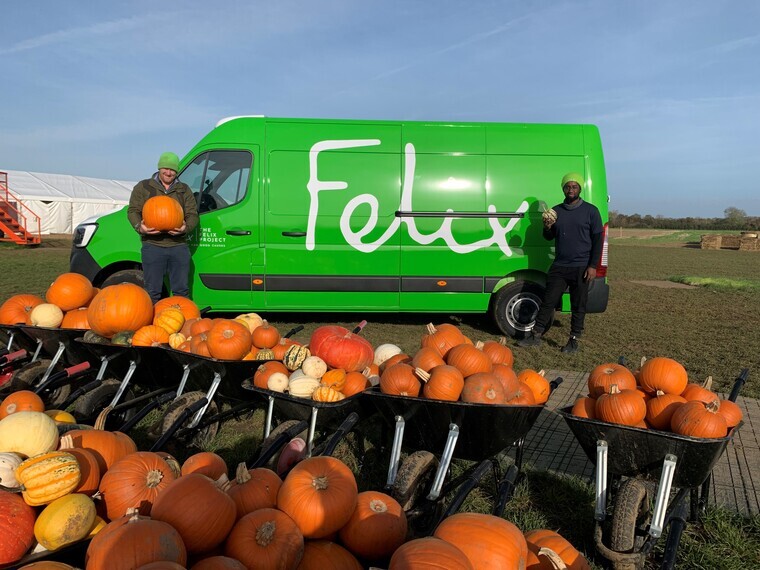Founded in 2016, The Felix Project has grown rapidly to become the largest food redistribution charity in London. Its website points out that while 1.5 million adults in London struggle to be able to afford food every day and 400,000 children are at risk of missing the next meal, around 1.6m tonnes of food is wasted at the primary (farm) stage of production each year.
Now the charity, which already works with a number of farms across the South East, is looking for more partners keen to see what would otherwise be wasted food put to good use.
The Felix Project operates out of four depots, served by a kitchen that produces up to 4,000 ready meals a day, and has a vision of “a London where no one is hungry and good food is never wasted”. Last year it delivered the equivalent of 30 million meals to more than 1,000 community organisations, including charities and schools, all free of charge.
Kate Brookes-Smith, the charity’s supply coordinator, explained: “With leftover food high on the global agenda, due to its environmental impact, and the demand to deliver to those in need growing, our aim this year is to expand our farm rescue programme to work with more farms within reach of London.
“In 2021 our volunteers picked 30 tonnes of super fresh and nutritious produce from over 15 farms. We picked apples from Bardsley England’s pollinator trees, pears and apples from Brogdale Collections, leeks from F C Palmer in Ely and squash from The Patch, Milton Keynes, to name a few.”
The Felix Project also collaborates with other charities and often picks alongside Kent groups The Hythe Environmental Community Group and Deal With It when they have been offered too much produce for their own local good causes. In February the group picked two tonnes of cabbages from Trevor Bradley at Boundary Farm, Wingham and put them to good use.
The charity is fully insured and self-sufficient regarding transport, equipment and volunteers and is keen to hear from farmers across the South East who want to make sure their hard work in growing nutritious crops is not wasted.




